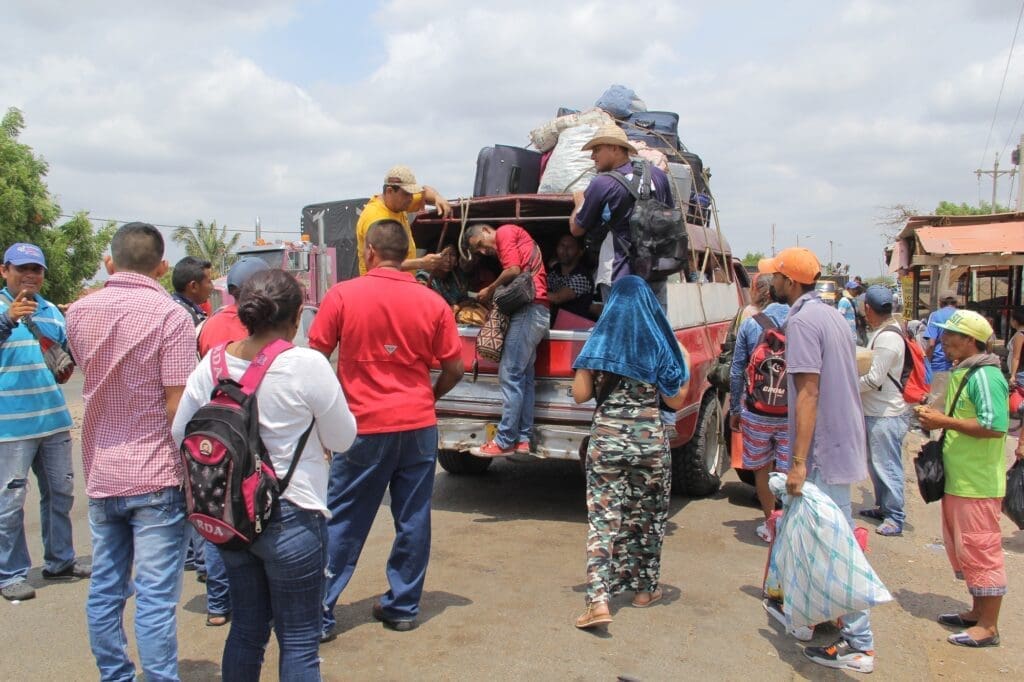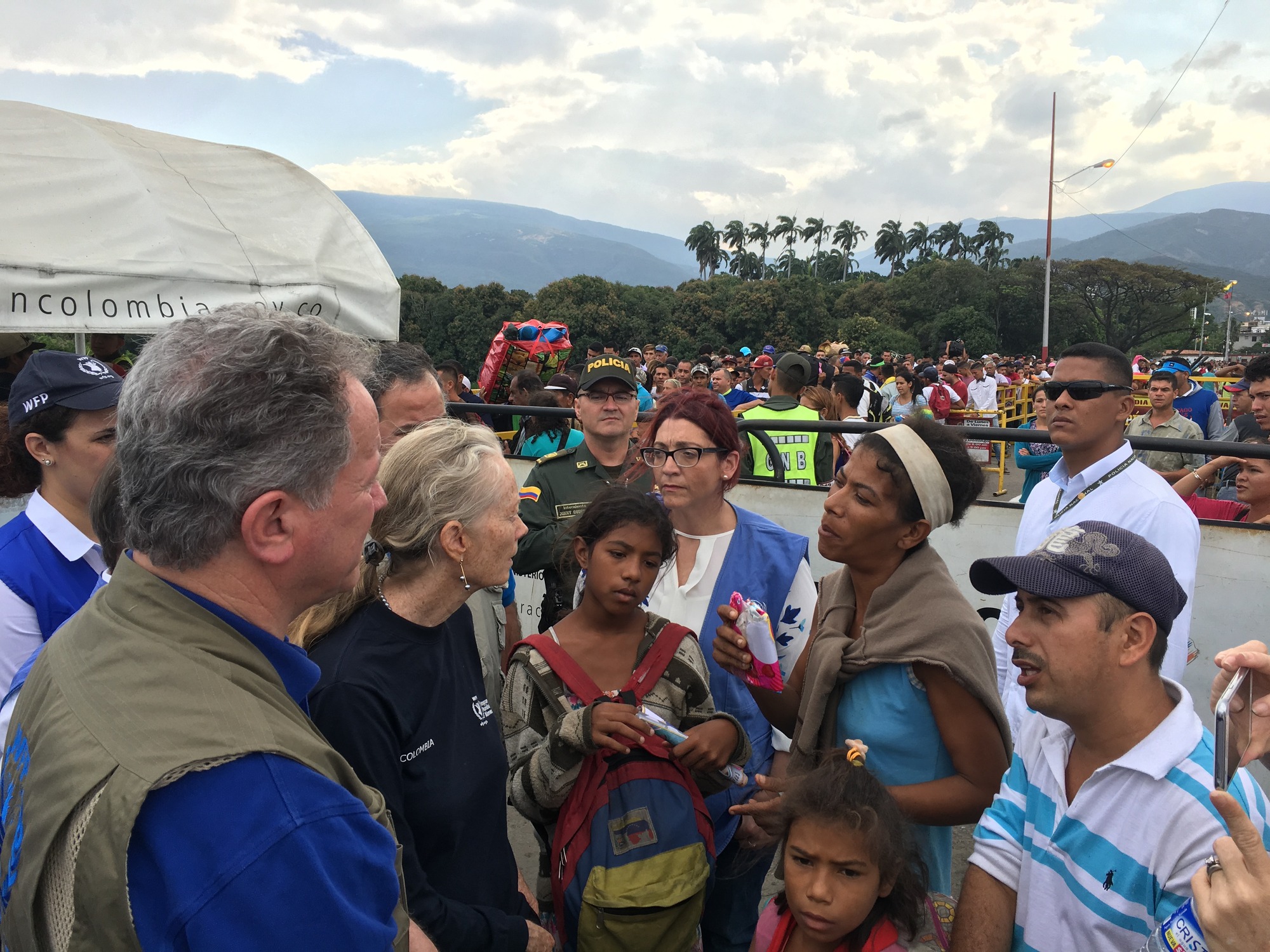A Border Crisis in South America

No food. No medicine. No reason to stay.
Over the last month, people have been leaving the South American country of Venezuela in droves. And 90 percent of them don’t know when they will eat next.
It’s a migration crisis—without an end in sight. To date, over one million people have crossed into neighboring Colombia. According to a World Food Programme (WFP) survey, 80 percent would like to stay permanently. And more than 650,000 people have already decided they won’t go back.
“We urgently need funds so that we can bring vital aid to migrant families who have left their homes behind and don’t know where their next meal is coming from,” said Miguel Barreto, WFP’s Regional Director for Latin America and the Caribbean. “We also need to support host communities, many of them already poor, who have shown great generosity as they bear the brunt of this crisis.”
At the request of the Colombian government, WFP has plans to provide food assistance for up to 350,000 migrants in shelters, school meals, as well as support for families trying to integrate into vulnerable indigenous communities. In some areas, migrants now make up more than half of the population.
Female head-of-households and children are particularly vulnerable, facing recruitment into sex work or by armed groups. Many have limited access to basic services and are at high risk of food insecurity and malnutrition. Less than two percent of breastfeeding women that have crossed the border are taking supplements and only seven percent of children are being breastfed and taking complementary food.
Each month, families will receive an e-card valued at $35 per person, which can be redeemed in local shops to buy nutritious food. This form of food assistance allows migrants to choose the foods they wish to eat, including options like fruits and vegetables, that provide them with a more diverse and healthy diet.
In March, WFP Executive Director David Beasley and WFP’s Country Director in Colombia Deborah Hines visited a migrant shelter in Cúcuta to see the situation first hand and listen to the migrants’ stories.

WFP/Norha Restrepo
One mother said her malnourished infant daughter had been hospitalized for pneumonia in Venezuela without access to food or medical supplies. In the span of one week, she said 10 children had died. But in the month since arriving in Colombia, her daughter’s weight has jumped from 11 to 24 pounds.
A separate middle-aged woman explained why she left in three simple words: “Hunger, hunger, hunger.”
“In Colombia, on the border, there is a humanitarian crisis,” Beasley said. “It is a catastrophe, and it is going to get much worse if something does not happen.”




